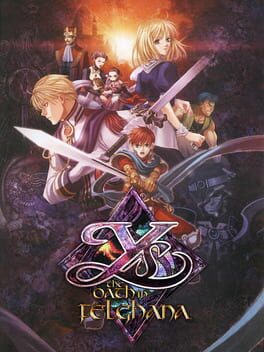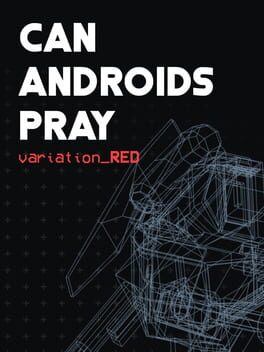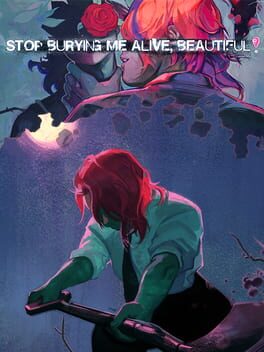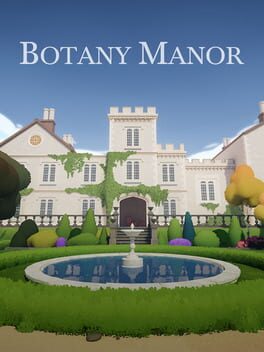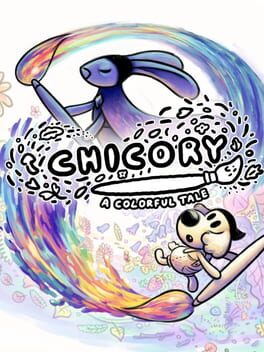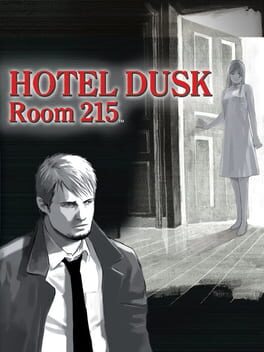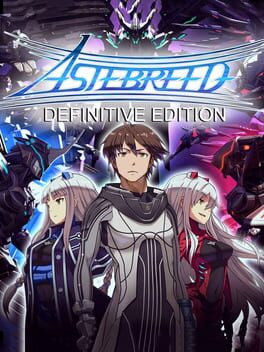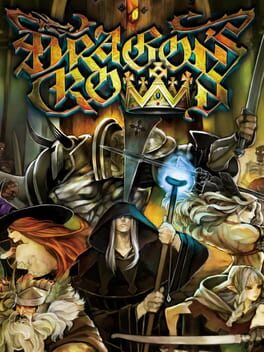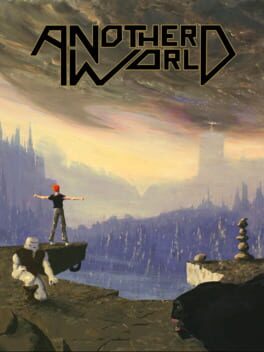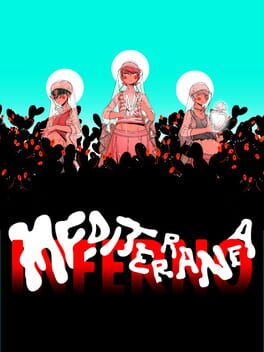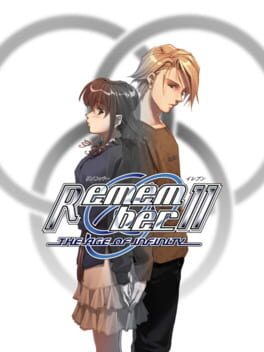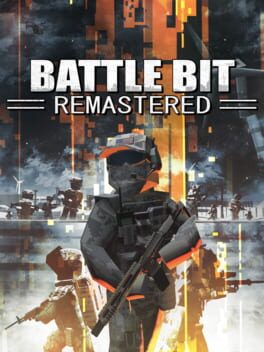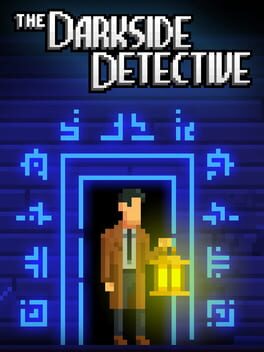mintcake
This game uses the same engine as the first few Trails games. The nostalgia is overwhelming. Unlike Trails though, this game is extremely fast paced, both in terms of combat and story, which is refreshing in an era when every ARPG wants to be Souls. My only complaint regarding combat is some of the aerial enemies are annoying to deal with, as our protagonist doesn't have the best airborne abilities. I'm pleasantly surprised by the level design. Each level is just the right size. I always knew where to go, and when I deviated from main path, there's always something worthwhile to be found.
I enjoy a small sci-fi story that takes a snapshot of a world much bigger. Androids contemplating about life and death and eternity is hardly a new idea, and indeed this story doesn't offer much, but it's still fun to dive into a different world, take in a little lore, then head out while you haven't get enough contradicting information to make it feel uncanny. It's like an exercise for your imagination.
The art is beautiful as always. After getting the same dead ending five times in a row, I had to look for a guide, which there isn't any. Apparently the choices you make in conversation don't matter that much for the final outcome, which I've never seen in a visual novel before. Finally, I was enlightened by a Youtube comment that told me to kill the rats. All these times I thought they were my friends! How could you befriend the rat girl while killing the rats?
2024
There are two kinds of puzzles in this game: the environmental puzzle which is mostly about finding clues, and the "proper" puzzle, which involves you piecing together the secret of each plant from the clues you find. The latter is pretty interesting, and not very hard. You just need to read the clues carefully. There is no weird logic leap that you'd find in a point-and-click adventure game. The environmental puzzles can get a bit obtuse at times. Thankfully the whole manor is not that big, and there is no required backtracking between chapters. There's also a story. Classic 19th century feminism. Personally, I'd just be glad that I was born a noble lady living in a lavish manor.
This is truly a Legend of Zelda inspired game. Just like Zelda, the titular character Chicory is a female of high station, and is directly connected to the crisis of the world, and you play as a completely different character. The game starts rather slow, but as you pick up a few traversal skills, the fun of exploration reveals itself. Puzzles are on the easy side, and you can't die in the boss battles. A completely stress-free gameplay experience with a feel good story to go along with.
2007
At first glance, you might think this is a hardboiled detective story featuring a cynical retired cop, but it really isn't. Our protagonist is on a personal quest, seeking the truth behind incidents happened to him prior. By accident or by design, he meets the colorful residents of Hotel Dusk, all of them having something to do with the truth he is seeking. He has exactly one night to figure it out, in a motel where no one is coming or leaving. Indeed, the setup is a classic "insulated mansion in a stormy night" rather than the sprawling metropolis where the hardboiled detectives usually dwell. Thankfully, nobody dies in this game, and the worst thing that could happen to our protagonist is getting kicked out. The detective work here is done mostly by talking to people (with some poorly designed puzzle solving in the mix). There is no gun in this story. The plot meanders quite a bit, with each side character has their own little arch. Sometimes it's not clear what to do next with the event that triggers plot progression seemingly coming out of nowhere.
2013
I suspect Nier Automata's STG sections with shifting perspective were inspired by this game. This game clearly has the focus on building an integrated overall player experience, rather than being a hardcore shooter, which makes it a good introductory title for newcomer of the genre. It's a shame that it doesn't have localized voice acting. Nobody has got the time to read subtitle during gameplay, which makes the story in cutscene incomprehensible. Thankfully the lore documents that are unlocked after finishing the game give a pretty good explanation of everything.
2013
1991
A frustrating game to play with zero tutorial, stiff control, obtuse puzzle and unaccommodating save point. A true pioneer that laid down the foundation for modern action adventure. It was perhaps too ahead of its time, that twenty years later, the golden formula of shooting, platforming and puzzle solving, accompanied by a strong cinematic direction and narrative focus, finally revealed its true potential. This is a fascinating piece of videogame history that is well worth experiencing, but you'd better have a guide in hand.
2016
The last chapter is literally machine translated. That chapter is pretty bad on its own, and the translation makes it so much worse. The first three chapters are quite enjoyable though. A bit of historical background knowledge can help make the game more interesting, especially in the first few hours.
2023
Playing this game as someone who is not gay, not Italian, and played a shit ton of videogame with my friends during Covid, I cannot relate to this game at all, which is exactly why the game is so cool to me. I want to feel the pain without actually experiencing it, the more dramatic the better. Too bad the game has the worst saving system of a visual novel ever. The auto save messes up everything and it cannot be turned off. Skipping content you've already seen is also a pain in the ass.
This review contains spoilers
This game asks a lot of suspension of disbelief from the player, and I tried my best to oblige without success. It is not the extraordinary situations (and their flimsy explanation) that distracted me from enjoying the story, but the way characters react to these situations. Kokoro often doesn't seem to grasp the dire situation she's in and is often distracted by minor affairs, while Satoru seems to put his curiosity over his immediate danger. It is clear from the start that the mystery itself is the only thing that matters for the developer, characters are mere tools in it.
But which mystery? How do the characters escape from the looming doom? How do they exchange conscious across space and time? These questions are answered in the game, but as I mentioned, the explanations are flimsy (quantum mechanics shenanigan).
There is one big mystery remains: what is this whole story all about? It doesn't have the most compelling characters, it doesn't have romance, and the sci-fi elements are quite cliche (at least in 2024). Is that it? What's the point? At the very, very end of the game, the game told me "the truth is not revealed". But how could it be if I have reached the end (all 33 of them in fact)?
I can only imagine the frustration that people feel when they played the original version of the game. Indeed, the game was considered incomplete, and people had been data mining for a missing last chapter. The history log that was added in the PSP version is the closest thing to what people were looking for. With its help, all of sudden everything clicks. Not only does it elevate the story to a whole new dimension (literally), it also ties the game to the two previous entries in the series. Even I, who is usually not a fan of meta narrative, have to begrudgingly agree that the real trick of the story, the mystery that is bigger than time travel, is pretty fucking cool. After Ever17, they got me again.
But which mystery? How do the characters escape from the looming doom? How do they exchange conscious across space and time? These questions are answered in the game, but as I mentioned, the explanations are flimsy (quantum mechanics shenanigan).
There is one big mystery remains: what is this whole story all about? It doesn't have the most compelling characters, it doesn't have romance, and the sci-fi elements are quite cliche (at least in 2024). Is that it? What's the point? At the very, very end of the game, the game told me "the truth is not revealed". But how could it be if I have reached the end (all 33 of them in fact)?
I can only imagine the frustration that people feel when they played the original version of the game. Indeed, the game was considered incomplete, and people had been data mining for a missing last chapter. The history log that was added in the PSP version is the closest thing to what people were looking for. With its help, all of sudden everything clicks. Not only does it elevate the story to a whole new dimension (literally), it also ties the game to the two previous entries in the series. Even I, who is usually not a fan of meta narrative, have to begrudgingly agree that the real trick of the story, the mystery that is bigger than time travel, is pretty fucking cool. After Ever17, they got me again.
2023
With graphics like Minecraft and a tiny development team, it just could not become the next big indie shooter. Since the first day it launched, the developer could not make up their mind on whether making it a tactical shooter or an arcade shooter, and the result is a game that is best played like CoD TDM but with visage tactical shooter mechanics. I do hope another bigger team could learn from this game's dedication to destruction, teamwork and communication, and produce a true Battlefield challenger.

